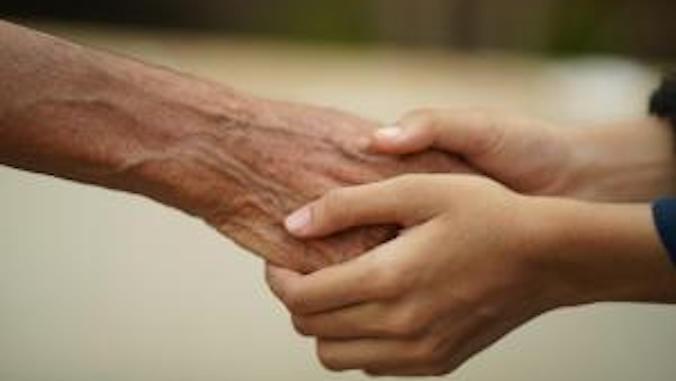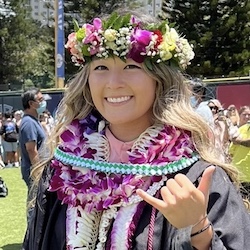
The difficulties rural-dwelling Native Hawaiian kūpuna (elders) face when seeking healthcare is the focus of a new study conducted by the Thompson School of Social Work & Public Health at the University of Hawaiʻi at Mānoa.

“Our research underlined the appreciation kūpuna felt for providers who took the time to get to know them and respected Hawaiian cultural practices, including traditional healing practices, like lāʻau lapaʻau (Hawaiian herbal medicine) and lomilomi (massage),” said public health PhD student Keilyn Leinaʻala Kawakami, who spearheaded the study.
Kawakami worked in collaboration with Hā Kūpuna, the National Resource Center for Native Hawaiian Elders, funded by the U.S. Administration on Aging, Department of Health and Human Services, and non-profit ALU LIKE, Inc. to conduct this five-year study.
“The older adults that have been interviewed for this project appreciated being asked to tell their stories,” said Leslie Tanoue, director of Kumu Kahi: Elder Services Department at ALU LIKE, Inc. “They also pointed out needs for additional medical, health and eldercare services in Hawaiian communities on the neighbor islands.”
The initial sample consisted of 10 kūpuna who were interviewed three times utilizing open-ended questions. The main purpose of the first interview was to establish rapport and receive a general story of their life, the second to learn about elders’ strengths, resiliencies and what they would like to pass to the next generation, and the last focused on the elder’s experiences with healthcare and social services.
Key findings
There were several other key findings from the study. First, most participants had experienced serious chronic diseases that required them to interact with specialists whom they generally had limited access to. Second, the kūpuna exemplified resilience despite limited access to specialty and mental health services in rural communities. Third, the kūpuna would like to see more integration of traditional Hawaiian health care practices and Western practices. Finally, kūpuna valued connection with their healthcare providers, which was established through mutual sharing and respect for each other’s lives.
One participant said of a Hawaiian provider with whom she feels comfortable, “He is so pleasant he always asks you how you are, he’s very relaxing…he’s also very present. He likes to ask you about the family and how things are going.”
“Increasing the quality of patient interactions does not necessarily take more time,” said Kathryn L. Braun, public health professor and senior author on the study.
Advice for providers
According to Braun, based on 2020 research by Donna Zulman of Stanford University, health care providers should follow five important steps:
- Prepare for the interaction with the patient.
- Sit down, lean forward, and listen intently and completely.
- Agree on “what matters most” to the patient in terms of the outcomes of the visit.
- Connect with the patient’s life circumstances and acknowledge positive efforts.
- Explore emotional cues and validate the patient’s emotions.
The kūpuna who participated in this study recalled positive experiences when Western providers spoke honestly and directly, had compassion, and genuinely built connections to patients, their families and the community.
Looking forward
As this project continues over the next four years, researchers hope to gain more knowledge about the perspectives of Kānaka Maoli kūpuna on their life experiences, strengths and resiliencies, as well as their healthcare experiences. These findings will be shared with health and social service students and providers to further the goals of improving access to care and extending longevity for Native Hawaiians.
“I am incredibly thankful for the opportunity to work with Native Hawaiian kūpuna through ALU LIKE, Inc,” said Kawakami. “Each elder we interviewed gave me a new perspective on life and taught me skills to become a better researcher, haumana and Kānaka Maoli.”
Kawakami’s co-authors on the paper also included Braun, Shelley Muneoka, Rachel L. Burrage and Kilohana Haitsuka from the Thompson school, and Leslie Tanoue from ALU LIKE, Inc.

